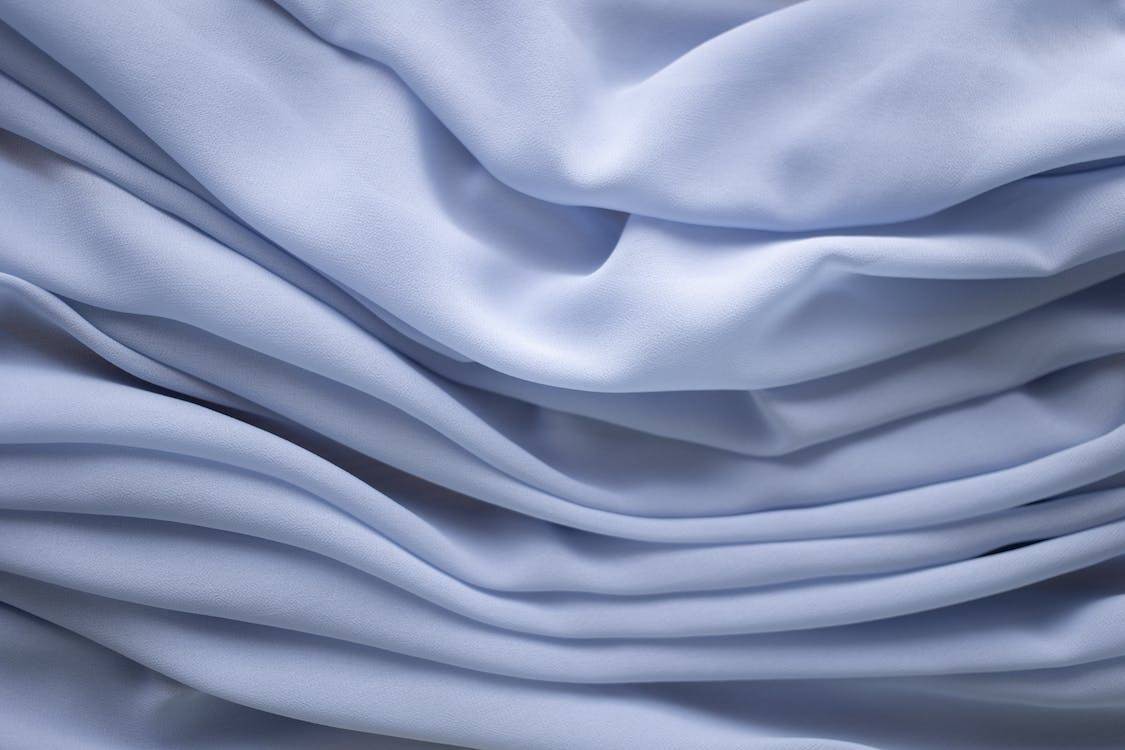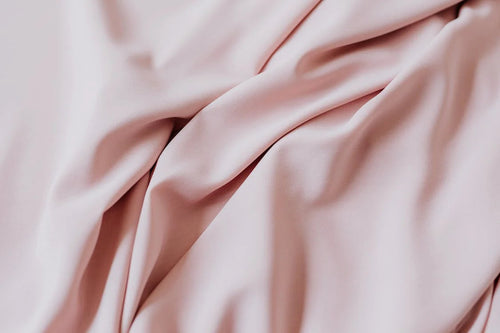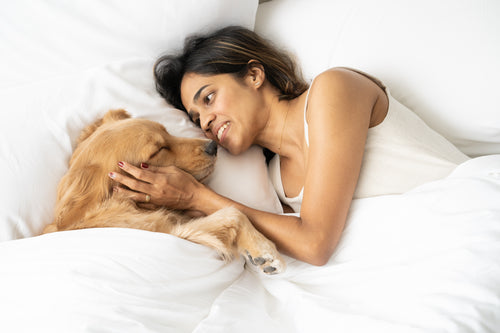Your bedroom might be the last place you’d expect to find nasty chemicals. It’s where you're supposed to sleep peacefully after a long day at work. Unfortunately, some brands follow unethical and unsafe production methods that involve toxins and harsh substances.
Quality bedding is not just all about soft, luscious sheets. There's no better feeling than unwinding and relaxing on clean, safe bed sheets in Singapore. In this article, we'll discuss what OEKO-TEX® sheets are, why such a certification matters, and how to know if your bedding sets are responsibly made.
Harmful Chemicals Used In Some Bed Sheets
During the journey of turning raw cotton into a fabric, toxic chemicals are sometimes added at each stage of growing, processing, dyeing, and handling. The majority of manufacturers use harmful substances such as pesticides, formaldehyde, heavy metals, carcinogenic dyes, and softening agents in their production process.
Those ’’no-iron’’ or ‘’anti-wrinkle’’ sheets you see on the market are treated with a formaldehyde-based permanent-press finish to keep them wrinkle-free.
Formaldehyde is used to increase wrinkle resistance and helps some dyes better penetrate fabrics. This also means they are designed not to be washed out. The formaldehyde resin becomes an irremovable part of the fabric which continues to release toxic fumes for the entire lifespan of the sheets. Although washing sheets diminishes formaldehyde levels, residues remain as long as the fabric stays wrinkle-resistant.
One of the main types of colorant commonly used, Azo dyes, can also be harmful under certain conditions as it releases cancer-causing chemicals known as amines. To make matters worse, because manufacturers aren’t required by law to provide consumers with this information, it can be difficult to tell what’s really in your sheets.
You'll likely be shocked and appalled to learn that the use of chemicals in textile manufacturing is generally unregulated.
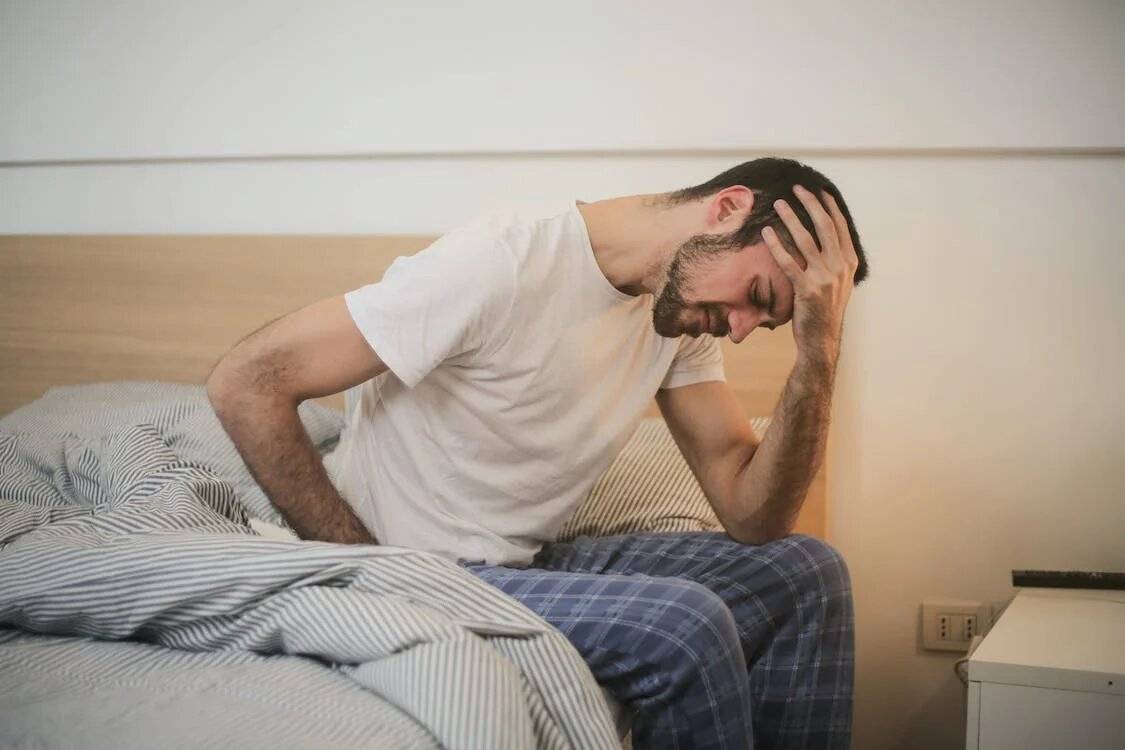
Image by Andrea Piacquadio from Pexels
Exposure to formaldehyde can cause several health issues such as headaches, skin rashes, respiratory problems, and insomnia. It’s tempting to look the other way and grab those bargain products but in the end, we all pay for this false economy.
Moreover, the textile industry produces over a million tons of synthetic dyes a year. Certain dyes contain heavy metals such as cadmium, lead, and mercury. These metals can accumulate in our body and cause irreversible damage to the nervous system or the kidneys.
What Is OEKO-TEX® Certified?

Image from Oeko-Tex®
You may have already seen the label OEKO-TEX® thrown around in the textile world but what does it mean and why is it important?
OEKO-TEX® is a registered trade mark representing product labels and certifications issued by the International Association for Research and Testing in the Field of Textile and Leather Ecology - OEKO-TEX® Association for short. It was founded in 1992 and is headquartered in Zurich.
Why Are Standard 100 By OEKO-TEX® Textiles Better?
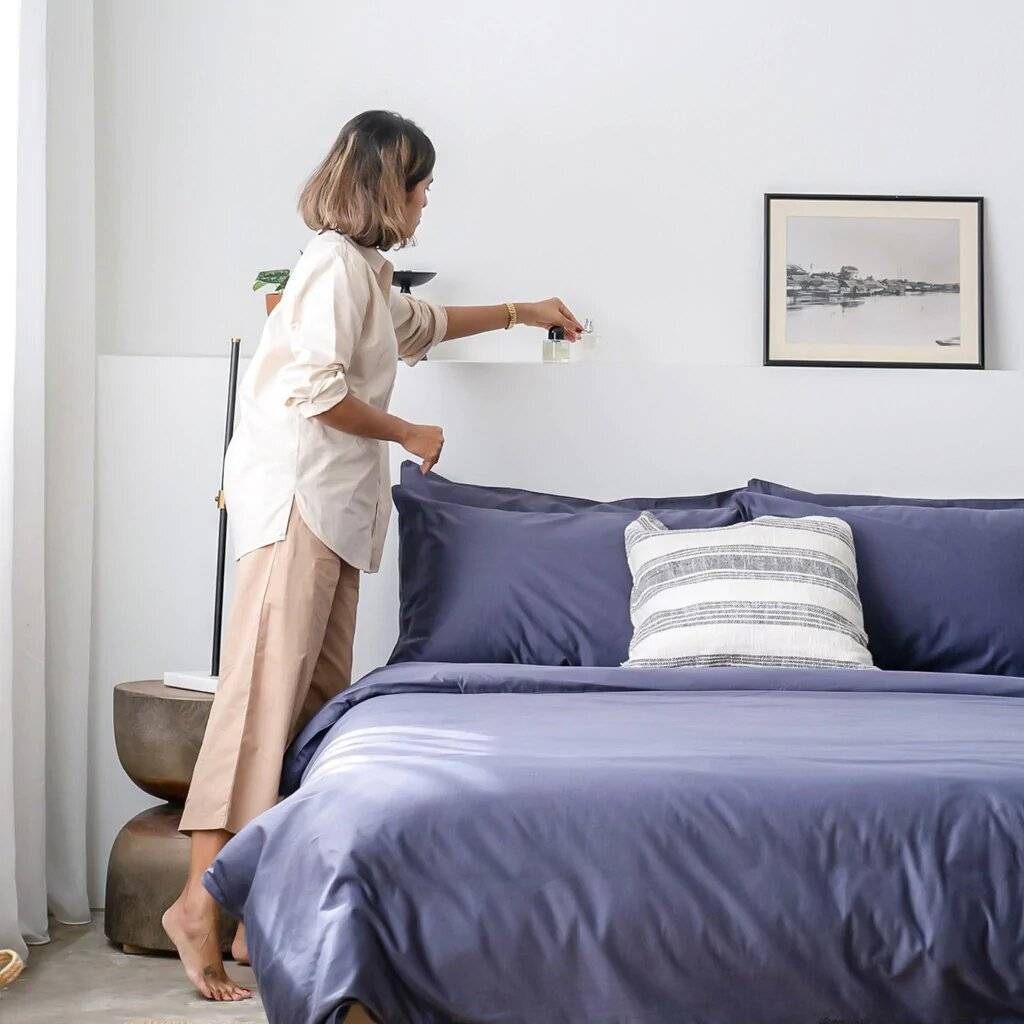
Featuring Weave's Cotton Deluxe Set in Midnight Blue
Standard 100 was introduced in April 1992 as a label for textiles tested for harmful substances. This standard was implemented with a focus on consumer health, especially to prevent adverse health reactions to textiles.
The label "Confidence in Textiles" that goes with the certification stands for responsible textile production, safety, and transparency. Not only does it guarantee that the products are free from harmful substances, it also represents an additional reassurance for factory employees and consumers.
Process And Certification: How To Get An OEKO-TEX® Certificate
A global network of independent laboratories test for toxic substances which are prohibited or regulated by law and chemicals that are known to be harmful to human health in accordance with Standard 100 by OEKO-TEX®.
The closer the material comes into contact with the skin, the higher the requirements need to be met in these tests. As a precautionary measure to safeguard health at every stage of production, they also test for color fading and acidity.
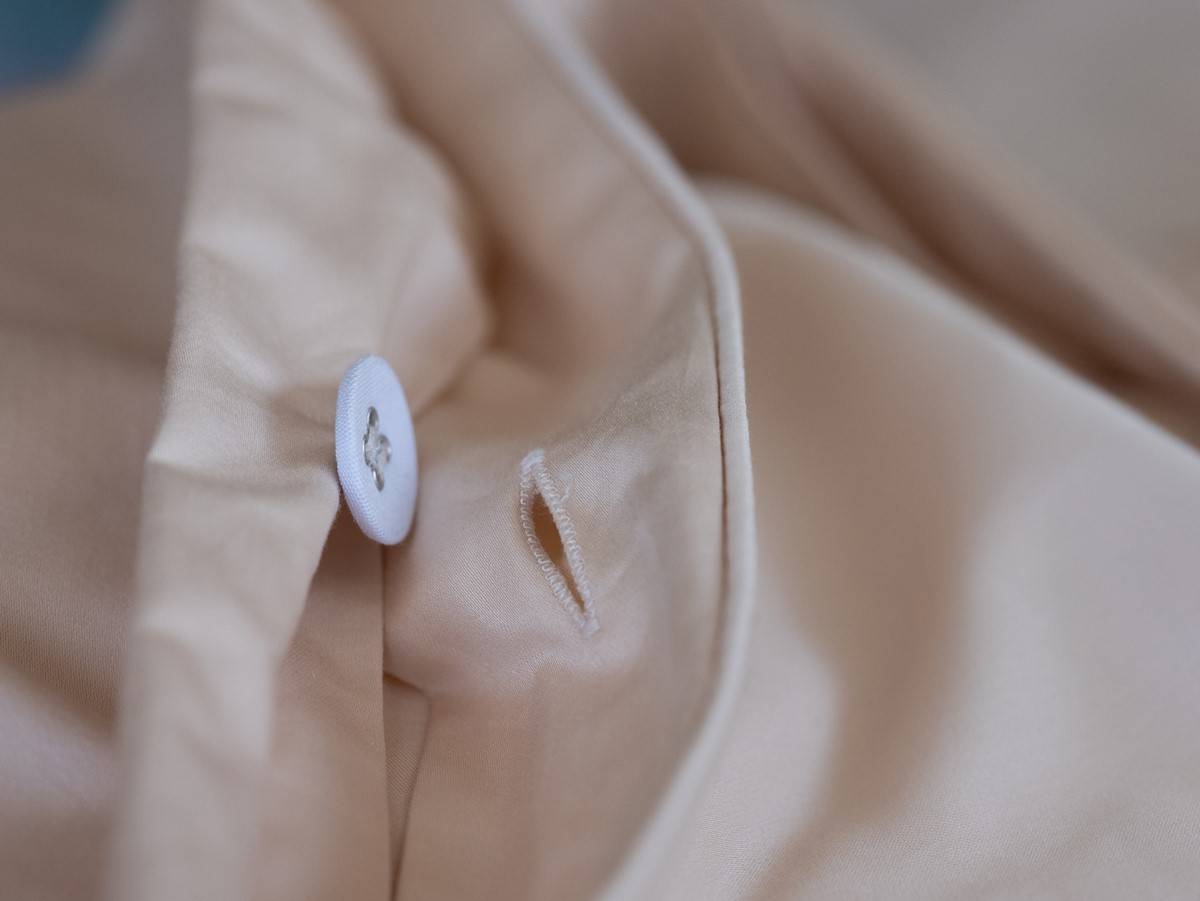
Featuring Weavve's Fitted Sheet Hidden Button
For a product to attain the Standard 100 certification, all of its components — including sewing thread, buttons, lining, etc. — along the textile supply chain are tested and certified to be free from harmful levels of over 100 individual substances from 17 groups of chemicals.
Besides Standard 100, the OEKO-TEX® Association also issues other product-related labels: Made in Green, Leather Standard, Eco Passport, as well as STeP and Detox to Zero which attest to socially and environmentally sound conditions in production facilities.
The Difference Between Organic And OEKO-TEX® Certifications
OEKO-TEX® and Organic certifications are often tied together. However, the latter is not what you might think it is. An organic certification pertains to how raw materials for the fabric is grown. Fibers that are grown organically but processed with harmful chemicals may still carry the organic label.
What Should You Look For In Bed Sheets?

Featuring Weave's TENCEL™ Classic Set in Lilac Mauve
When buying bed sheets, beware of words like: natural, pure, or organic cotton sheets as these terms are loosely used. Remember to read labels, look for the OEKO-TEX® certificate and ask questions. Ideally, you need to dig deeper into how bedding sets are made to get to the end stage product - safe, toxin-free fitted sheets, duvet covers, mattress protectors, and other bedding items.
Explore Weavve's OEKO-TEX® Standard Sheets
When we were creating Weavve, we not only wanted to make great looking and sheets that will make you feel refreshed when you wake up in the morning, but safe bed sheets too. That drove us to manufacture our products in a mindful way and offer OEKO-TEX® certified bedding products.
Responsibly Made
Featuring Weave's Bed Sheet Factory
At Weavve, we are committed to providing ethical alternatives to create sustainable luxurious living. We sleep better at night knowing that our sheets are OEKO-TEX® certified. Not only does this mean that our products are better for you, they are also manufactured in a way that is better for the environment.
To ensure each of our sheet is responsibly made to the highest social and environmental standards, we validate every step in our entire supply chain. Apart from being OEKO-TEX® certified, our factories are also in compliance with the BSCI code of conduct.
Moreover, our factories follow strict guidelines that ensures no harmful chemicals are being used in the manufacturing process. From the fields to your hands, we prioritize not only aesthetics and quality but also transparency and sustainability. That is why we look at packaging in a fundamentally different way.
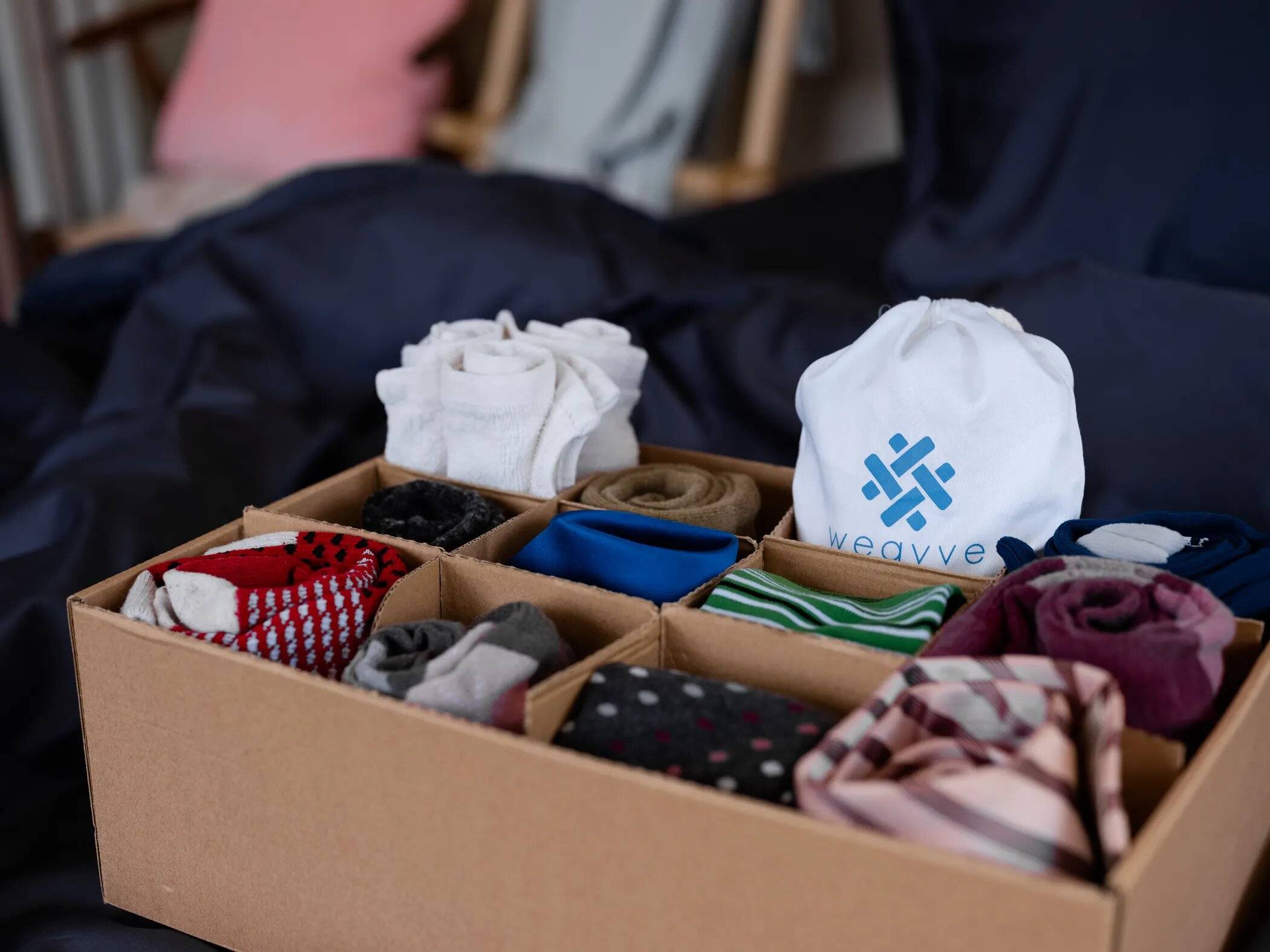
Featuring Weave's Packaging
We want you and your family to feel confident knowing our products are authentic, sustainable, and most importantly, free from chemicals. This makes our bedding sheets perfect for babies and those who have sensitive skin. Rest easy knowing that Weavve’s sheets are made from certified fabric that are kind to both your skin and health.
Cotton Sateen Bed Sheets
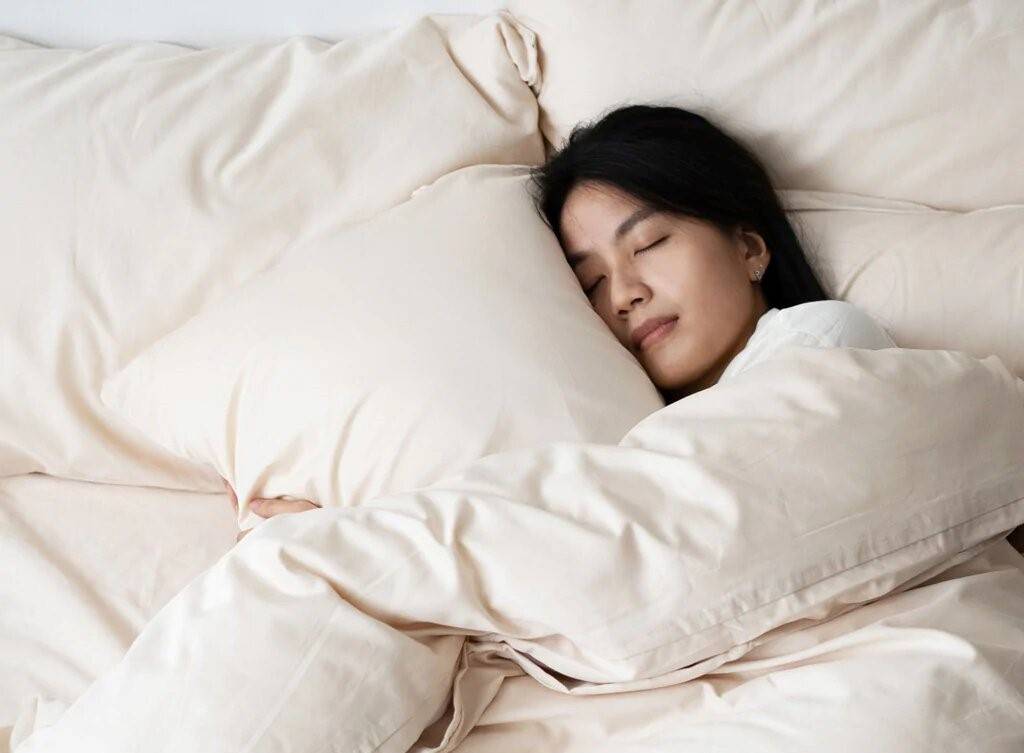
Featuring Weave's Cotton Deluxe Set in Sandshell
Sleep with a peace of mind with Weavve’s cotton sheets that are certified free from harmful dyes and chemicals. Our 600 thread count bed sheets are made from extra-long staple and fine single-ply threads to ensure a buttery smooth and soft feel with a subtle sheen.
-
Shop cotton bedsheets Singapore
TENCEL™ Bed Sheets
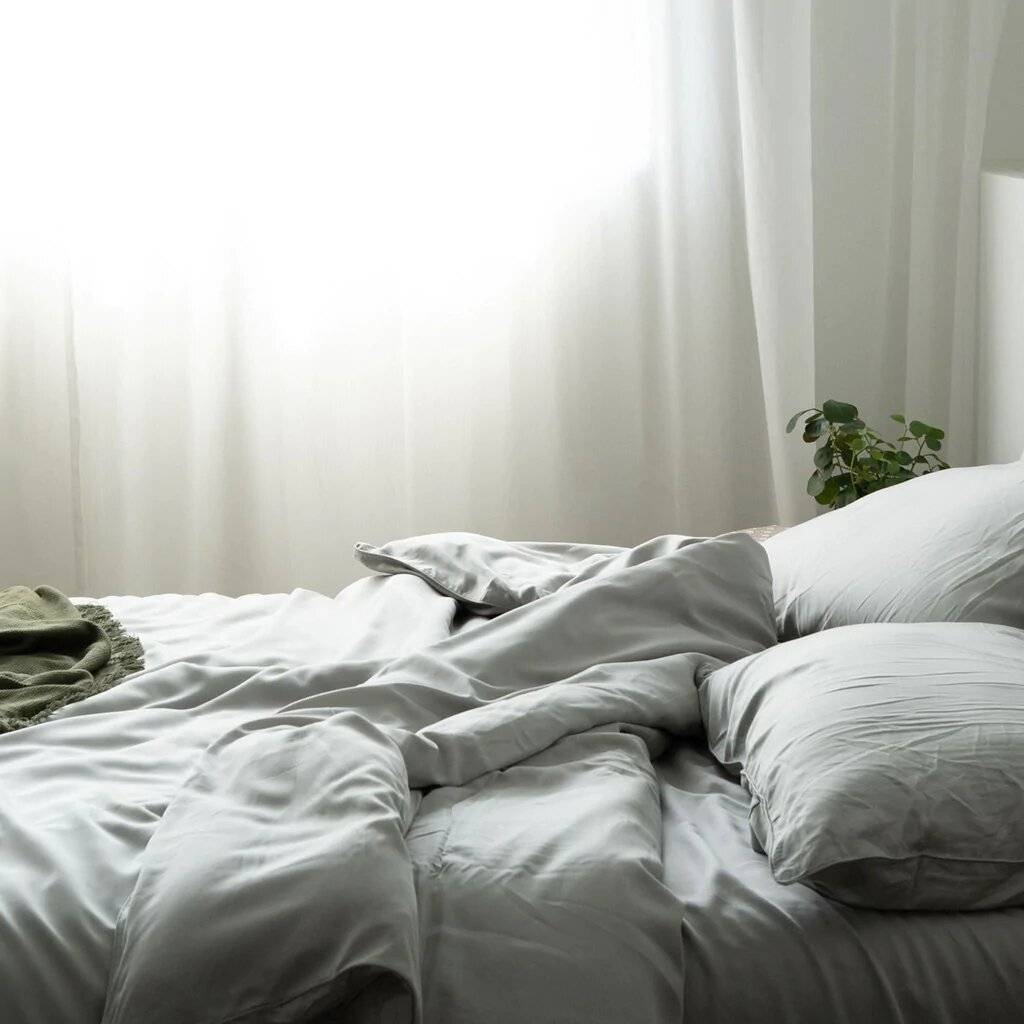
Featuring Weave's Signature TENCEL™ Classic Set in Mist Grey
Our Oeko-Tex® certified sheets are also available in TENCEL™ Lyocell. Made from the best Lyocell fibers, our ultra-cooling sheets provide luxurious comfort and sustainable softness. They are popular for being eco-friendly as they originate from eucalyptus wood and undergo closed loop production process – this means up to 99% of the reagents are recovered and the water is recycled.
-
































